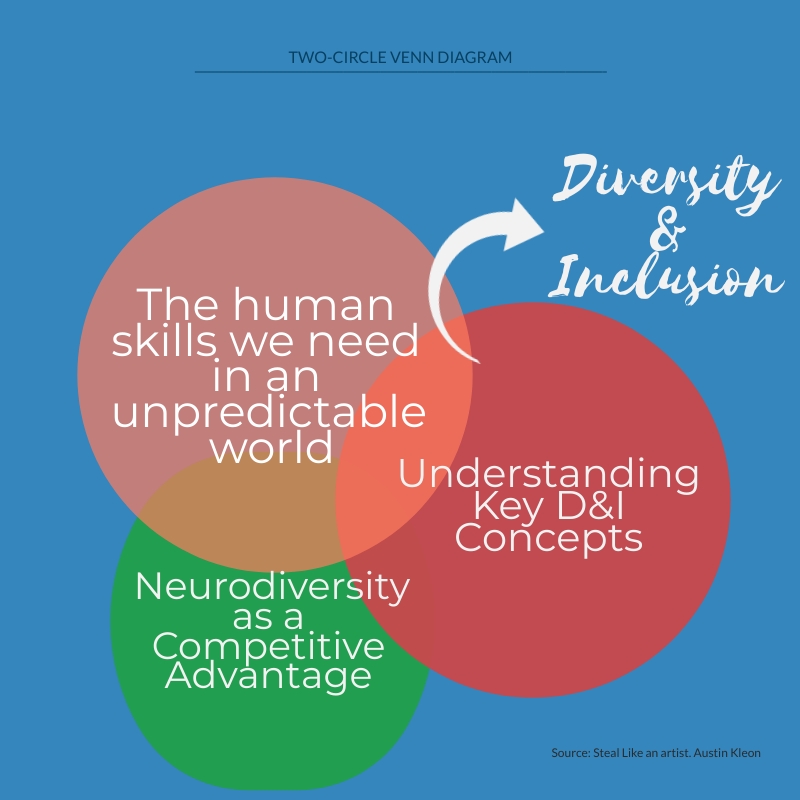Response #1
The style of Margaret Heffernan’s TED Talk, The Human Skills We Need in an Unpredictable World, was quite compelling. Ms. Heffernan, an entrepreneur, CEO, writer and keynote speaker, immediately grabbed our attention by sharing case studies that presented examples of things the audience likely would predict had happened, then surprised us by showing that we were wrong.
Heffernan led us through the telling of multiple stories with unexpected endings primarily because every case involved humans versus technology. Our presenter’s voice possessed a cadence that kept her audience’s attention and she engaged us by asking a question then answering it. She used descriptive words like “robust”, “inefficient” and “preparedness” repeatedly to drive home her point. Heffernan was able to captivate her audience by discussing things that mattered to them, like the value of humans over algorithms.
Once she drew in her audience, Heffernan shared some philosophies that are important to her like how outsourcing to machines displaces people in low-income jobs or how technology leads us to not connect with people different from ourselves and have less compassion for others. In the end, she proved to us that humans are uniquely cut out for unpredictability and all its wonder.
Response #3

Margaret Heffernan, entrepreneur, CEO, writer and keynote speaker, is an innovator. She started out by looking at what made women-owned businesses different from others. Now she examines the intersection of business, technology, society and family.
During her TED Talk, “The Human Skills We Need in an Unpredictable World” we find that Heffernan’s views align quite well with many of the issues we’ve been studying in class. She understands that nothing is in a vacuum and that all things are connected. Ms. Heffernan spends a lot of time examining how the impact of one action can have a domino effect on multiple, seemingly unrelated, things. This is an important point as shown in “Key D&I Concepts” where Kaplan and Donovan illustrate how executive Kim unknowingly causes negative impacts on several of her employees through seemingly innocent acts. Similar to Austin and Pisano’s Neurodiversity as a Competitive Advantage, Heffernan’s TED Talk also speaks to the problematic nature of algorithms resulting in disconnection from and dispassion for others unlike ourselves. In an attempt to be efficient in hiring by using algorithms, many companies miss out on surprisingly beneficial relationships with atypical job candidates. As Ms. Heffernan put it, “We are attempting to force-fit a standardized model of a predictable reality onto a world that is infinitely surprising”. While we delve deeper into our work on Diversity and Inclusion, I hope we learn to do away with force-fitting standardized models on people and embrace everyone’s differences.

Sherri,
I appreciate your point of Ms. Heffernan spending a lot of time examining how the impact of one action can have a domino effect on multiple, seemingly unrelated, things. This is a good observation.
In my other summer class project management, we discuss the concept of the domino effect. We saw in our team working on a complicated report due. Everyone was assigned individual pieces to get done by a certain deadline. Everything was set and on schedule. I was responsible for submitting the assignment. However, one team member responsible for the content in several sections started running behind. What’s even worse is that he didn’t bother to communicate this fact to the team. Unfortunately, two other team members needed that information to complete their sections. I ended up doing that person’s work just to get the assignment completed and in on time. I’m not sure if that person quite realizes the significance of their delay and the domino effect it had on the team.
Frankly I think every student should take a project management class just to learn the lesson of the domino effect.
Most of us get a crash course in the domino effect at some point, though rather few may have the opportunity to study project management directly. In a course or elsewhere in life, we often have occasion to learn by doing. And as with most lessons, it sticks best when we take a little time to reflect on it–what happened, why did it happen, how can I make sure it doesn’t happen again…..
Agreed, Sherri–Heffernan does a good job of illuminating the problems that arise from trying to impose a one-size-fits-all theory or process on to the infinite variety of humanity. Her angle of approach is a bit different from some of the other texts that we’ve read, but there’s definitely some overlap there. Diversity is the norm among humans, and we would do well to remember that as we’re constructing and inhabiting cultures.